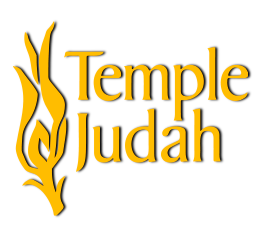Shalom All,
During the final moments of Yom Kippur, as the sun begins to set and everyone in the sanctuary is anxious for the service to end, we find this reading in the Yom Kippur machzor:
“Our sages teach: As soon as the fast of Yom Kippur concludes, pound the first nail in the sukkah! To everything there is a season – a time for prayer and looking inward, a time to go outside and build. So it is written: ‘One mitzvah inspires another.’ May this long day of fasting and self-denial inspire acts of creativity, generosity, and joy. May we go from strength to strength…”
The lesson, according to the rabbis, is that we should run from one mitzvah to another. Traditionally, minutes after we finish our Yom Kippur prayers we are expected to hammer in the first nail in our sukkah, because the holiday of Sukkot is just five days later. As the Torah portion for Sukkot reads: “On the fifteenth day of the seventh month there shall be the Feast of Booths to the Eternal…” Yom Kippur is the 10th day of the month. Because of this, our sages urged us to immediately move from the solemnity of Yom Kippur to the building of the sukkah where many will dwell, eat, and sleep during the week of Sukkot.
On one hand the idea that we would run from one mitzvah to another is quite beautiful. On the other, don’t we deserve a break following ten days of repentance and one very long day of prayer. Nope, according to the Torah we are expected to be ready to celebrate another holiday just five days later. And, this isn’t just some easy, one-day holiday! As the Torah specifies: “You shall observe it as a festival of the Eternal for seven days in the year; you shall observe it in the seventh month as a law for all time, throughout the ages.”
Why would we do this to ourselves? Because we need joy after so much time spent afflicting our souls.
The holiday of Sukkot has many names, but one of its most famous is Chag Simchateinu, “The Holiday of Our Joy.” After a day of fasting, beating our chests, self-denial, and introspection, we need time to celebrate. Many of us have done the hard work of t’shuvah to return to our best selves. We’ve looked inward and focused on self-growth and improvement. Our rabbis recognized that after this difficult time of introspection, we need joy!
One of the most interesting aspects of the holiday of Sukkot is its connection to living in booths. As it is written, “You shall live in booths seven days.” Many of us eat meals, welcome guests, and even sleep in the sukkah over the week-long festival. Yet, Sukkot is different from almost every Jewish holiday. Other holidays are tied to specific events. Passover, celebrates the Exodus, Shavuot, the gift of Torah at Mt. Sinai. Even Hanukkah and Purim mark specific moments in Jewish history. Yet, Sukkot is different.
Sukkot isn’t about any particular event in our history, but about a period of time, our time in the wilderness. It’s not about a miraculous moment, but about the regular moments that kept us alive and sustained, daily. Sukkot doesn’t celebrate the high points but the normal ones – the daily needs that are met continually.
How wonderful that after the deep introspection of the High Holidays we are commanded to spend an entire week focusing on living the Jewish value of joyfulness. Sukkot is a restart, an opportunity to move forward after the solemnity of Yom Kippur. So, for an entire week, we celebrate a holiday with family and friends rather than in solitude.
As Sukkot begins, let us seize the opportunity to celebrate with joy.
Let us find a way to connect with the natural world that sustains us.
Let us take some time to be grateful for all of the blessings in our lives.
Chag Samei’ach everyone
May you have a joyous and wonderful holiday.
Shalom
Rabbi Todd

